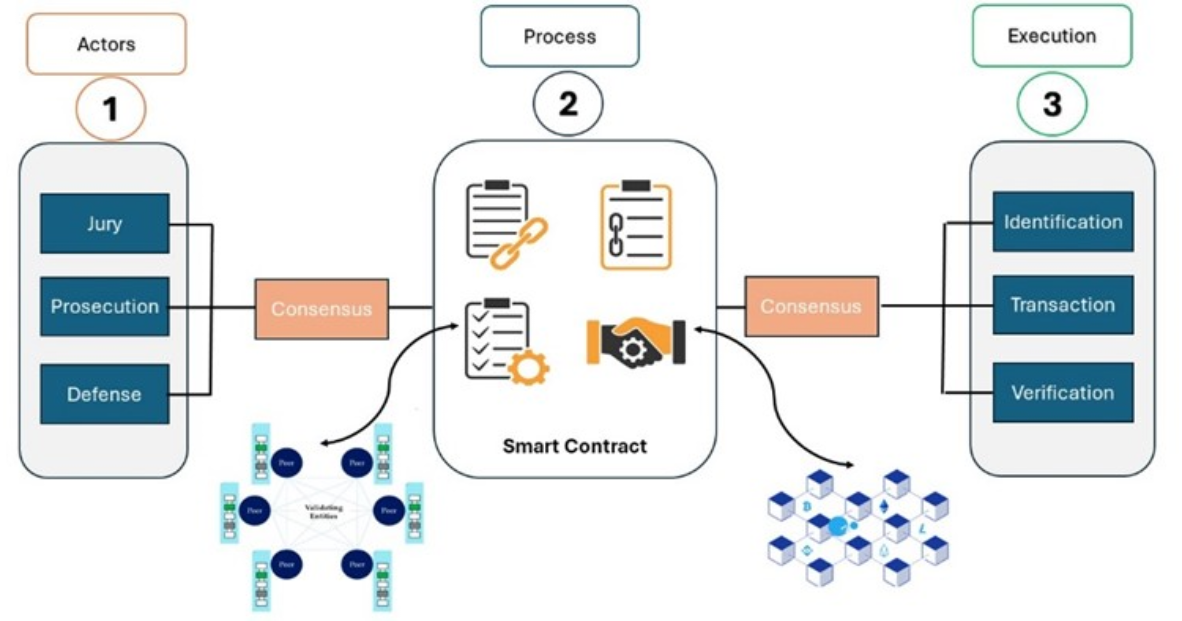Brett Rickaby's Insightful Corner
Exploring the world through news, tips, and intriguing stories.
Ensuring Smart Contract Fairness: Is Code Really Law?
Discover the truth behind smart contracts and their fairness. Explore if code really is law and what it means for the future of blockchain!
Understanding Smart Contracts: Are They Truly Immune to Bias?
Understanding Smart Contracts begins with recognizing their foundational role in blockchain technology. Smart contracts are self-executing contracts with the terms of the agreement directly written into code. They operate on decentralized platforms, meaning that once deployed, they run exactly as programmed without the need for intermediaries. However, the idea that these contracts are truly immune to bias requires deeper examination. While the code itself is objective, the algorithms and parameters set by developers can inadvertently introduce biases—reflecting their values and perspectives. The question then arises: can we trust smart contracts to deliver impartial results when their creation is influenced by human intentions?
Moreover, the immutability of smart contracts does not ensure fairness. Once a contract is live on the blockchain, it cannot be modified, which means any bias present in the initial coding can persist indefinitely. This can have significant implications, especially in sectors like finance or law, where bias can lead to unequal treatment of individuals or entities. To address potential biases, it is essential for developers to implement transparent coding practices, engage in rigorous testing, and foster community scrutiny. Only then can we begin to bridge the gap between the technological promise of smart contracts and the real-world implications of their biases.

Counter-Strike is a popular first-person shooter game that pits teams of terrorists against counter-terrorists in various objective-based missions. Players can enhance their gaming experience by using a bc.game promo code to access exclusive rewards and bonuses. With its strategic gameplay and competitive nature, Counter-Strike has become a staple in the esports arena.
Exploring the Concept of Code as Law: The Pros and Cons of Smart Contract Fairness
The concept of Code as Law refers to the idea that smart contracts, which are self-executing contracts with the terms of the agreement directly written into code, can govern transactions and interactions in a decentralized environment without the need for intermediaries. This paradigm shift offers several pros, including increased efficiency and transparency. By automating contract execution, smart contracts reduce the potential for human error and fraud. Additionally, blockchain technology ensures that all transactions are recorded immutably, which can significantly enhance trust among parties involved. However, the automation of legal agreements also brings to light important concerns regarding fairness. These codes are only as impartial as the developers who write them, raising questions about unintended biases and the potential for exploitation.
On the flip side, the cons of relying solely on smart contracts highlight the pressing need for thorough oversight and regulation. Since code can be open to interpretation and misrepresentation, the lack of recourse in case of disputes can lead to unfair outcomes. Moreover, smart contracts often lack the flexibility to address unique circumstances that arise in human interactions. Vulnerabilities in the code can also lead to critical security risks, potentially resulting in significant financial losses for participants. As we move towards a future where code is law, it is essential to balance the benefits of technological advancement with the necessity of ensuring equitable and just outcomes for all parties involved.
How to Ensure Fairness in Smart Contracts: Best Practices and Common Pitfalls
Ensuring fairness in smart contracts is crucial for building trust in blockchain applications. Here are some best practices to consider:
- Thorough Testing: Before deploying a smart contract, it’s essential to conduct extensive testing in various environments to identify and rectify potential vulnerabilities.
- Open Source Code: Making the code publicly accessible allows for peer reviews, enabling the community to catch mistakes and ensure transparency.
- Clear Terms: Clearly define the terms and conditions within the contract. This will help prevent misunderstandings and disputes among parties involved.
However, despite these best practices, certain common pitfalls can compromise fairness:
- Neglecting Upgradability: Smart contracts are immutable, so failing to plan for future updates can lead to stagnation or security risks.
- Centralized Control: If a smart contract grants excessive control to a single entity, it can undermine fairness, leading to potential abuse of power.
- Ignoring User Feedback: Engaging with users and addressing their concerns is vital for improving contract fairness.